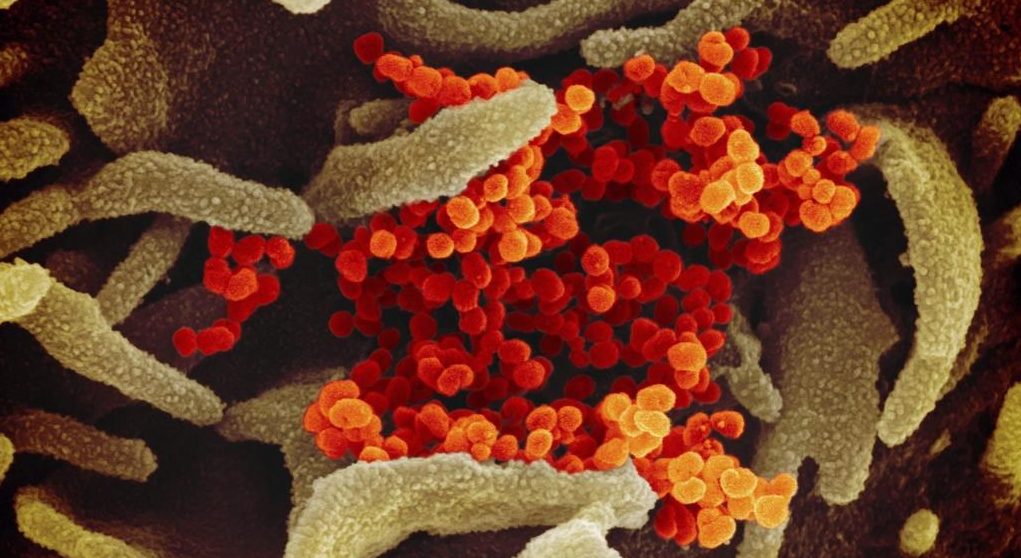CALGARY (660 NEWS) – Dr. Deena Hinshaw, chief medical officer of health, announced Monday that there are 42 new cases of COVID-19 in the province.
That makes 301 total cases so far in Alberta.
BREAKING: Alberta has 42 new cases, now up to 301 overall.
24 may be community transmission.
18 hospitalized, 7 in the ICU. No new deaths. #yeg #yyc #ableg #COVID19Ab
— Courtney Theriault (@cspotweet) March 23, 2020
Hinshaw said of the 301 cases, 18 are in hospital, seven are in receiving care in the ICU, and that as many as 24 cases could be as a result of community transmission.
Hinshaw then addressed a case of community transmission in Edmonton where Alberta physicians and other health care staff met for a medical bonspiel.
11 of 47 health care workers who went to a medical bonspiel in Edmonton tested positive for COVID19.
Some went back to work afterwards.
Alberta Health now contacting everyone who came into contact with those medical workers, including patients. #yeg #yyc #ableg
— Courtney Theriault (@cspotweet) March 23, 2020
She said of the 47 in attendance, 11 now tested positive for COVID-19.
Hinshaw said two major lessons are to be taken from the incident: even mild symptoms can result in the transmission of the virus, and commonly touched surfaces can result in the spread as well.
“COVID-19 does not discriminate. All of us need to be vigilant with regular hand hygiene, staying home even with minor respiratory symptoms, and keeping unwashed well away from our faces,” said Hinshaw.
Hinshaw said there are some big changes as to how long those infected with COVID-19 should be self-isolated.
Those who are sick must self-quarantine for 10 days following mild symptoms of the virus, such as a runny nose.
For those who traveled outside Canada or came into contact with someone who has COVID, they must still isolate for 14 days.
If those people feel sick, then they must adhere to the new 10 day strategy ON TOP of the 14 day travel isolation.
— Courtney Theriault (@cspotweet) March 23, 2020
If after 10 days, there are no more symptoms, the isolation can stop.
However, if the symptoms remain, so to must the isolation.
For those who have not tested positive for COVID-19 but are either re-entering the country or were exposed to the virus, the self-isolation period of 14 days remains.
Meanwhile, testing for the COVID-19 virus is also being changed slightly.
While those at a higher risk, like those admitted into hospital with respiratory issues or those in a continuing care facility, will still remain a priority, health care workers will be added.
Hinshaw says they will begin testing health care workers later this week so they can return to the front line sooner than later.
Will no longer test people with mild symptoms.
— Courtney Theriault (@cspotweet) March 23, 2020
“This is being done to ensure the physicians and nurses and other health care providers we rely on can return to the front line as soon as possible,” said Hinshaw.
Moving forward, mild symptoms will no longer be tested.
Hinshaw says the new testing procedure shows that the number one thing to do when you have mild symptoms isn’t getting tested, but remain in isolation.
“I understand some Albertans may be upset with this change,” said Hinshaw.
“I can appreciate the comfort and certainty that testing can bring for that unsure whether they have a minor bug or COVID-19.”
However, for those concerned with potential mild symptoms of COVID-19, Hinshaw stressed the importance of self-isolation.
In order to prevent possible transmission in hospitals, Hinshaw said AHS is taking two major steps.
First, starting this week, all hospital staff will be screened before starting their shift.
“They will be met at the entrance, given a temperature check, and asked to complete a short questionnaire to assess health risk,” said Hinshaw.
Staff, workers will be screened at the start of their shift.
Their temperature will be checked and they will answer a questionnaire.
Anyone employee who doesn’t meet the requirements will be sent home and asked to self-isolate.
— Courtney Theriault (@cspotweet) March 23, 2020
Those who are deemed a health safety risk will be sent home and told to self-isolate.
Secondly, AHS is implementing a process to help necessary front line workers who are self-isolating to return.
If they are showing no symptoms of COVID-19, an even more harsh screening process will allow for staff to return.
Although Hinshaw did recommend getting outside for some much-needed activity during the COVID-19 precautions, she emphasized the importance of social distancing.
No matter where you are, keep a distance of two metres between yourself and others.
Hinshaw reiterating importance of physical distancing, especially if you’re going out for a walk at the Glenora stair or Nosehill.
Don’t touch rails, garbage cans, etc.
She cautions against travel to the mountains.
— Courtney Theriault (@cspotweet) March 23, 2020
“I know that these measures that we have put in place continue to strain families, businesses, and all Albertans. I appreciate how hard it is to be separated from friends and family during such stressful times.”
Hinshaw said we are all in this together and need to continue to take care of one another.








